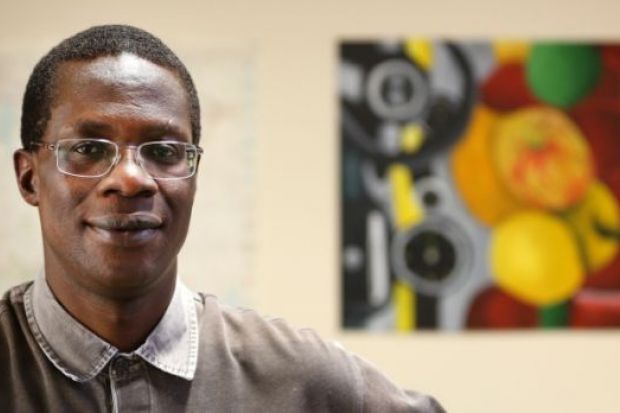The Royal Society of Chemistry (RSC) is to provide £750,000 for university projects aimed at tackling the severe under-representation of black academics in the discipline.
At present, there is only one black chemistry professor in the UK – the University of Nottingham’s Robert Mokaya – and just 1 per cent of non-professorial academic staff in chemistry are black, according to the RSC’s Missing Elements report published last year.
As part of a wider £1.5 million three-year investment, the RSC will provide grants of up to £60,000 to support institutional projects that tackle racism and racial inequalities, including initiatives to improve representation, progression and retention of black and ethnic minority chemists. Projects to support allyship and a sense of belonging among ethnic minority staff and students will also be considered.
One major area of concern is the drop-off among black students between undergraduate and postgraduate level. Black representation at undergraduate level is strong, with almost 5 per cent of students identifying as black, higher than the 3 per cent of the UK population who do so, but this falls to 1.4 per cent at postgraduate level. This attrition is unlikely to be caused by an awarding gap, with the proportion of black students with a 2:1 or higher broadly similar to other ethnic groups, the Missing Elements report found.
Joanna Jasiewicz, race and ethnicity unit lead at the RSC, said that the grant scheme, which will provide £250,000 a year in funding for the next three years, was needed to address the “shocking” under-representation of black chemistry staff.
“This isn’t the picture we’d hope to see and the figures haven’t really changed in the past 10 years,” said Dr Jasiewicz, who added that this lack of representation, in turn, led to a “limited sense of belonging” among black chemistry students.
“When people don’t see others who look like them, they might wonder whether there is a place for them in academia, or if they’ll be more scrutinised than others,” Dr Jasiewicz told Times Higher Education.
Improving the proportion of black students taking postgraduate degrees – overall, 7.1 per cent of postgraduate STEM degrees are taken by black students – would be a desirable outcome from the funding, but success could be measured on different indicators, said Dr Jasiewicz.
“I would not mind seeing an increase in black students reporting racism in universities – students tell us they feel they can’t do this, so if a project created a culture change where this is possible, then a rise in complaints wouldn’t necessarily be a bad thing,” said Dr Jasiewicz.
The scheme, which will award minimum grants of £10,000, has been developed with feedback and support from Heads of Chemistry UK, whose chair, Steve Howdle, is himself undertaking “reverse” mentoring from a junior scientist from outside chemistry to better understand the issues facing black chemists at the University of Nottingham, where he works.
“As a white, middle-aged professor I have not experienced some of the issues that some of our black colleagues have faced in their careers. I feel now that I am much more aware of some of the issues that black scientists have to face, but there is still plenty more that I need to learn,” said Professor Howdle. He added that the mentoring scheme had led to the introduction of an anonymous recruitment process for researchers and academics at Nottingham’s chemistry school.




